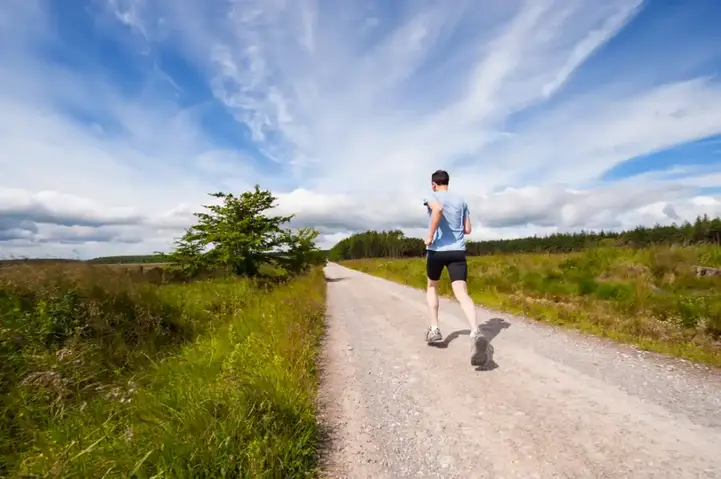Harvard genetics professor swears that with four habits he reflects his biological age by 10 years
It only takes a little modification in your modern lifestyle. The topic of longevity has become a hot topic in recent years. Not only do people want to live longer, but they also want to live happier and healthier lives without injuries or diseases. But as we all know as we get older, infections appear very often, and the chance of getting sick and giving in to diseases increases dramatically. However, David Sinclair, a professor of genetics at Harvard University, believes that being able to reverse our age well and stay young is not a question of whether or not it will happen, but rather a question of when. In addition to the natural aging that is sure to occur, it is believed that there are some steps we can take to reverse our biological age by a decade and it won't take long to start.
Recommend
1. Foods you should get rid of

Dr. Sinclair is well aware of what gets into his body. He uses tracking tools such as blood biomarkers and epigenetic age to adjust his diet. And the main thing that he tries to eradicate from his diet is the thing that everyone likes: sugar. Nowadays, everything we consume contains a certain concentration of sugar, especially when we consume ready-made processed foods. But people love it very much, yet a diet high in sugar tends to cause:
● Cardiovascular diseases
● High risk of obesity
● Type 2 diabetes
● High blood pressure
I know it's hard to stop eating all sugary foods altogether because what's the point of not having some sugar in your life to improve your mood? But you can focus on eating them in moderation. The professor recalls that when he switched to a diet with a lower sugar content, his memory improved and he told GQ magazine:
What you can do:
● Try to reduce your sugar intake to one ingredient twice a week
● Replace dessert with yogurt, dark chocolate and fruits
2. Skip breakfast

Part of knowing what to consume also consists of knowing when you shouldn't consume food. Dr. Sinclair skips breakfast and fasts intermittently by waiting 16 to 18 hours between large meals at his work establishment. But the idea of fasting is "when your brain is working at its best," according to Mark Mattson, a professor of neuroscience. Fasting generally helps with:
● Avoid diabetes, heart disease, cancer and dementia
● Increase insulin sensitivity that better regulates blood sugar, thus helping your body burn fat
In short, it is a complete slowdown of the aging process.
I think this will definitely help with the weight loss process because you consume fewer calories on a given day, but it's not suitable for everyone and certainly not for me. But it is worth trying especially for people who have never tried it before. Just pay attention not to overdo it so as not to risk experiencing malnutrition or starvation. Your health is much more important than the result of losing weight.
What you can do:
● Try intermittent fasting but gradually increase the timing of fasting
● Gradually reduce the size of breakfast consumption if you are used to eating breakfast every day
3. The medicine with which the professor swears

Every morning, Sinclair consumes antioxidants from polyphenols that mainly help strengthen the gut microbiome. Antioxidants don't have to be in grain form because they are easily found in berries, peanuts and red wine. Sometimes, he would also take it with a few bites of yogurt or some matcha green tea because it's also full of polyphenols. Another nutrition-trained psychiatrist at Harvard University, Dr. Uma Naidoo, emphasizes the importance of polyphenols to help boost energy, mood and sleep, and stated that constant consumption of such foods can "change the composition of the digestive system in about a month." Not only does it help improve mood and increase heart strength, but it also reduces the risk of tissue damage in your body. But you should also not take it in high doses as it will cause side effects such as nausea and vomiting in these cases.
What you can do:
● Eat Greek yogurt, kefir, kimchi, kombucha and pickled cabbage to develop good gut bacteria
● Eat garlic, turmeric, ginger, cinnamon and chili peppers to regulate stress hormones
4. The hardest part ever

This is the part that most adults struggle with as they get older. It's the act of moving more. Dr. Sincaler aims to lift weights three times a week and tries to run daily. But if he feels low in energy that day, he will simply go for a walk instead. The thing about exercise is that you don't necessarily have to do a thorough exercise session every day. Your body will feel very tired by the end of your workout anyway. Doing this three times a week gives your body enough time to recover and you're more likely to enjoy training and progress will get more anyway. You also don't need a gym to get a great workout, doing bodyweight exercises is enough, especially if you know how to apply the gradual load to it.
A word from Sinclair

If there's only one thing I've learned from this article, Dr. Sinclair shares his biggest advice for people who want to extend their lives and health:
Adhering to these habits
There will be times when you go off track and can't do them every day, but as long as you're putting yourself back on track, you're doing a great job! Thus we see that, the opposite of biological aging. It's not a question of whether we can reverse aging and stay young, it's a question of when. We can do this by following four habits: reducing sugar intake, intermittent fasting, polyphenol consumption, and exercising regularly. Reducing sugar intake is important because it can lead to various health problems such as cardiovascular disease, obesity, type 2 diabetes and high blood pressure. Intermittent fasting and consumption of polyphenols, which help strengthen the gut microbiome and improve mood and energy levels, should be practiced. In addition to exercising regularly and it is very important to continue these habits.








